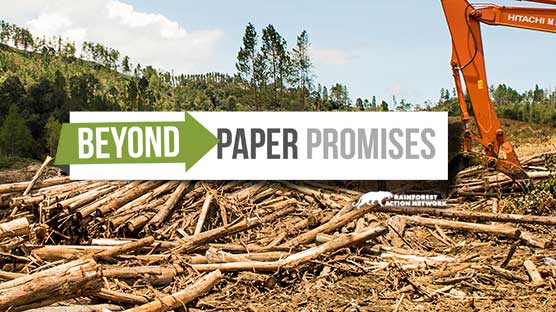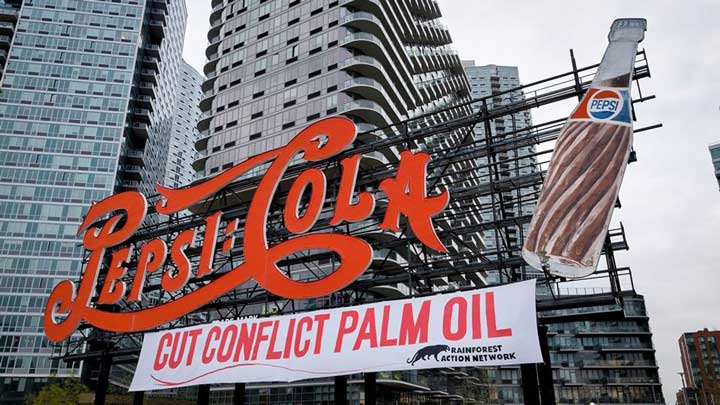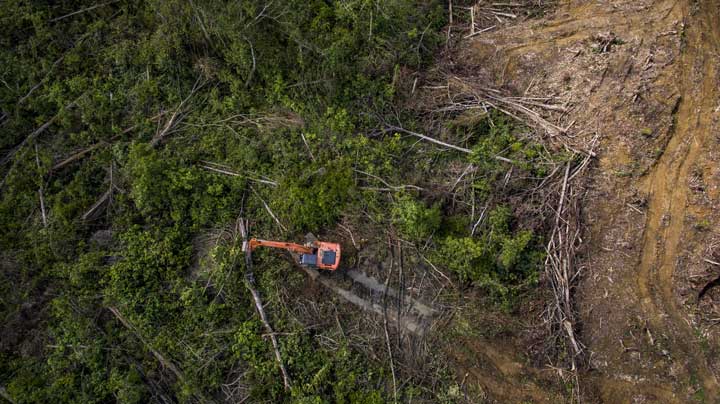
By Alexandra Fradelizio | m/Oppenheim Media Writer
According to the Rainforest Action Network’s website, half of the Earth’s plants and animals make their homes in rainforests. However, corporations often contribute to deforestation practices, permanently damaging vital environments around the world.

“We challenge and encourage corporations to reduce their impact on forests and on forest communities,” explained Lindsey Allen, executive director of Rainforest Action Network (RAN).
“We talk about working at the intersection of protecting forests, defending human rights, and combating climate change.”
Over its 30 year history, RAN has pressured companies to eliminate business within fossil fuel, paper, and palm oil sectors, all of which contribute to climate change within forests.
“We push the companies to do what is necessary,” said Allen.
“We often negotiate with them so they can adopt policies that make a real difference and work with them to implement those policies inside the boardrooms.”
Using nonviolent and creative protest tactics, RAN convinces corporations to adopt environmentally conscious policies. One company that responded to the work of the organization was the Walt Disney Company. After two RAN advocates dressed up as Mickey and Minnie Mouse and protested the Walt Disney Company’s unsafe paper retrieving strategies, the company implemented a new set of guidelines in order to protect rainforests. While the Walt Disney Company recognized RAN’s concerns, many corporations, including banks, continue to fund sectors that negatively impact ecosystems worldwide.
“There are a couple of companies that need to fundamentally change the way that they are interacting with communities and the environment,” explained Allen.
One corporation RAN has battled in recent years is Pepsi Co. The company, which uses palm oil for its products, has declined to speak with the organization regarding safer policies.

“They are one of the leaders in the snack food sector that has refused to take responsibility for deforestation and human rights abuses that are happening as a result of palm oil expansion in Indonesia,” said Allen.
In order to garner support from the general public, RAN implements various social justice campaigns. The organization releases reports which evaluate different companies and their relationships to various rainforests.
“It brings to the surface those companies that aren’t making progress and also commends the companies that are,” explained Allen.
“We want to make sure communities that are directly impacted, particularly indigenous and frontline communities, are at the center of what the solutions are.”
The organization, which is funded by individuals and private donations, employs a “grassroots model,” said Allen. This framework not only provides a guideline to maintaining healthy rainforests but also places the power back into the hands of natives.
“When we think about really lasting change, the best mechanisms for protection is to allow communities that have been protecting the rainforests for generations to have their rights recognized,” explained Allen.
For Allen, RAN’s view of implementing a “holistic solution to implement lasting change” allows the organization to protect and save rainforests and communities around the world.

“I came to RAN because I appreciate we’re willing to do what’s necessary and say what’s necessary for companies to have a lasting impact,” she said.
However, Allen fears new changes to current government policies will place many forests at risk.
“Based on the current administration policy of throwbacks and undermining progress on environmental and social justice issues, it feels like we are in chaos mode.”
Despite governmental setbacks, Allen remains confident the work of RAN will continue to “highlight and amplify the voices of communities” and return rainforests to those who call it their homes.
Learn more about the Rainforest Action Network and Donate.
